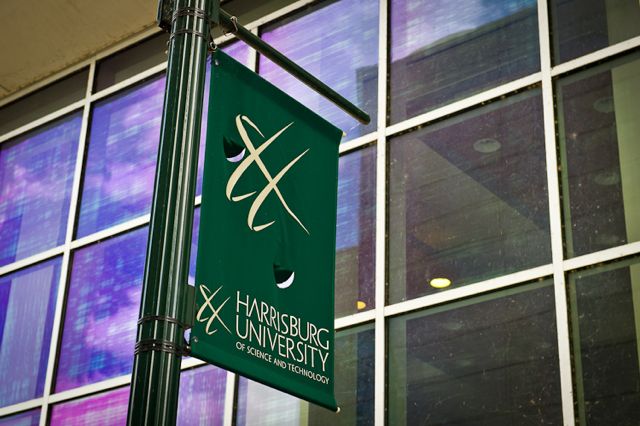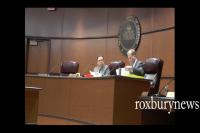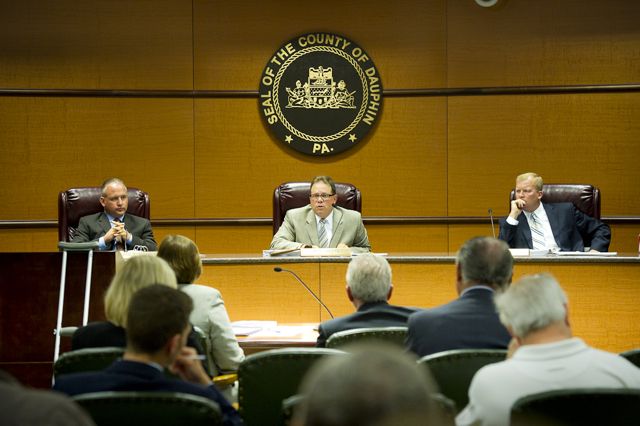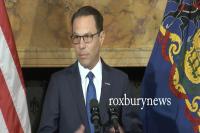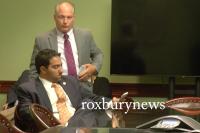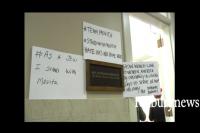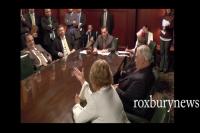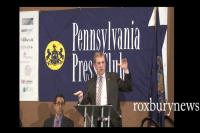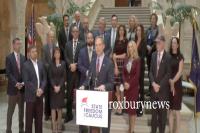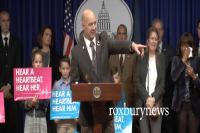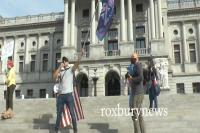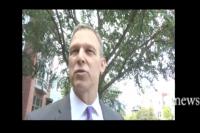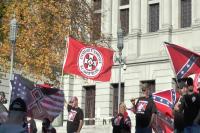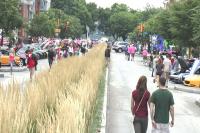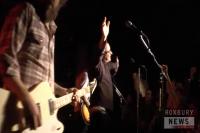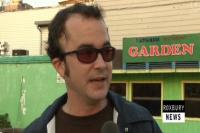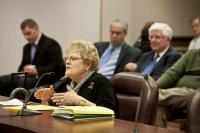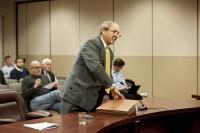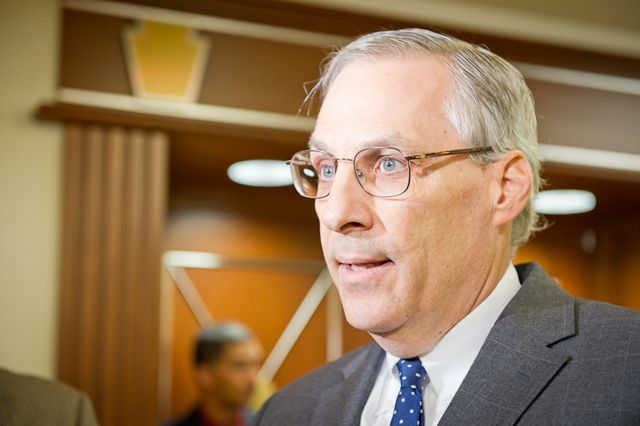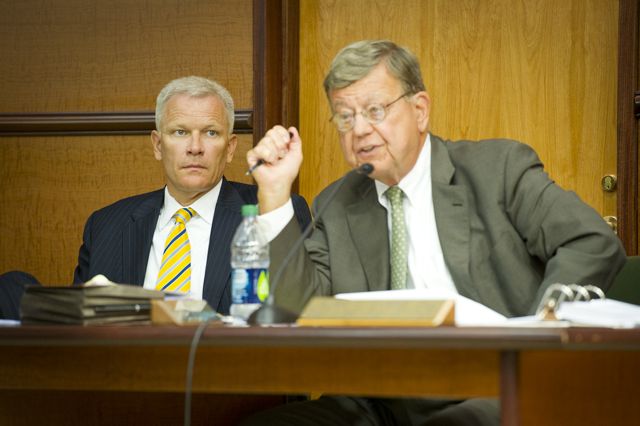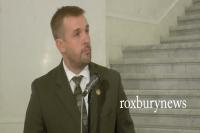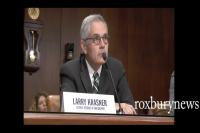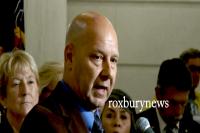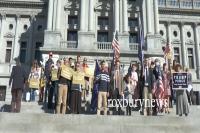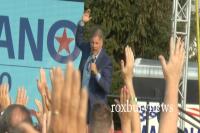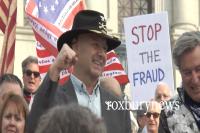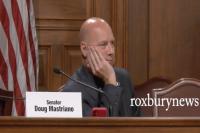From Pittsburgh Post Gazette_______ By Tracie Mauriello and Dennis B. Roddy, HARRISBURG -- At the time he chaired the state House Democratic campaign committee, state Rep. Steve Stetler rejected a plan that would have shifted the job of opposition research from state employees to private firms, a onetime top campaign aide told a state grand jury.
"It was more or less shot down," Dan Wiedemer, now an aide to another House member, told grand jurors in July, just days after a dozen former House members and their staff were charged with diverting tax dollars to pay for political campaign work. He said Mr. Stetler, who at that time chaired the House Democratic Campaign Committee, suggested "we have a perfectly good system in place already."
The testimony regarding Mr. Stetler took place during a still-ongoing investigation by Attorney General Tom Corbett into allegations that millions of taxpayer dollars were used for bogus performance bonuses for state employees who worked on the 2006 and 2004 election campaigns of Democratic candidates for the state House.
A partial transcript, obtained by the Post-Gazette, places Mr. Wiedemer's testimony on July 29 of last year -- more than two weeks after a statewide grand jury returned a presentment charging 12 current and former House members, including former Minority Whip Mike Veon, D-Beaver, with multiple counts of fraud in the scheme.
Mr. Stetler, who now is the state secretary of revenue, has not been charged as a result of that investigation.
However, sources close to a continuing investigation into the use of state employees for political campaigns said investigators are trying to decide whether they have enough to build a case against Mr. Stetler and were known to be discussing that question as recently as two weeks ago.
Mr. Stetler, a Democrat from York, left the House after 2006, opting not to run again in the wake of voter backlash over a pay increase legislators voted themselves the preceding year.
Through a spokeswoman, Mr. Stetler released a two-sentence statement:
"It distresses me that selective, confidential information from the ongoing grand jury investigation is being leaked from anonymous sources. I have confidence that the legal process will eventually reveal the facts."
Mr. Wiedemer told prosecutors that he was concerned that utilizing volunteers from the ranks of state employees would not produce consistent results. The research he was discussing was so-called "opposition research," the gathering of as much data as possible about opposing candidates, including debts, mortgages and any legal problems.
"The way it should have been done and the way, by the time '05, '06 rolled around, we hoped it would be done is that you hire an outside firm. You pay them $2,500, maybe $5,000 a race. They send their folks out to courthouses. They pore through the records and they give you back a nice professional book describing everything about that person's background, about your own candidate's background," Mr. Wiedemer testified.
Mr. Wiedemer said he took the idea to Mr. Stetler after pricing the cost per race.
A prosecutor then asked him, "Were you shot down in a way that Stetler said, well, look we can't afford this and we're not going to be able to do it or in a way that it was relayed that we can't afford this and so we're going to have our folks do this; we're going to have our employees of the taxpayers do this?"
Mr. Wiedemer responded "Right. It was sort of getting back to what I mentioned earlier: Why in the world would we pay somebody $5,000 per campaign when we have a perfectly good system in place already."
Mr. Stetler was finance chairman of HDCC from 1999 to 2002 and operations chair from 2003 to 2006. He resigned his House seat and HDCC position to join the Economy League in 2006.
He was nominated revenue secretary in November and confirmed by the Senate in March.
Several legislative aides who were assigned to Mr. Stetler received large bonuses in 2005 and 2006 and were heavily involved in campaigns, according to campaign expenditure receipts reviewed by the Post-Gazette. Several of those staffers testified before a grand jury investigating the use of taxpayer funds for campaigns. Mr. Stetler also helped round up volunteers from other lawmakers' staffs. In a May 2005 memo to fellow Democratic lawmakers, he said, "I urge you to encourage your staff to volunteer their time and talents over the next 11 weeks to the House Democratic Campaign Committee. ... The HDCC will be contacting your staff regarding this matter and I ask that you allow them every chance to participate."
A trail of e-mail messages shows 2005 wasn't the first time Mr. Stetler had been directing staffers' campaign efforts. In a 2004 e-mail message Paul Martz, who was being paid as a legislative aide, suggests to Mr. Wiedemer that, "Stetler maybe send the Westmoreland delegation, sans Tangretti, an e-mail telling them that I have been assigned to work with them through the election." At the time, Mr. Martz was a state employee already assigned to work for the re-election campaign of Westmoreland Democrat Thomas Tangretti.
In another string of messages in 2004 Mr. Stetler and six others -- some on state payroll and others on the campaign committee staff -- discuss plans to convene a meeting during the work day to discuss research being conducted on candidates challenging Democratic incumbents. Four months later, in another message sent to state-provided e-mail accounts, Mr. Stetler thanked 14 legislative staffers for "doing opposition research" and invited them to a party at a Harrisburg bar.
Chuck Ardo, a spokesman for Gov. Rendell, who appointed Mr. Stetler to the Revenue post in November, issued a statement: "Needless to say, we are concerned about all the allegations involved in this particular affair, but we intend to wait for the grand jury to finish its work before reaching any conclusions."

